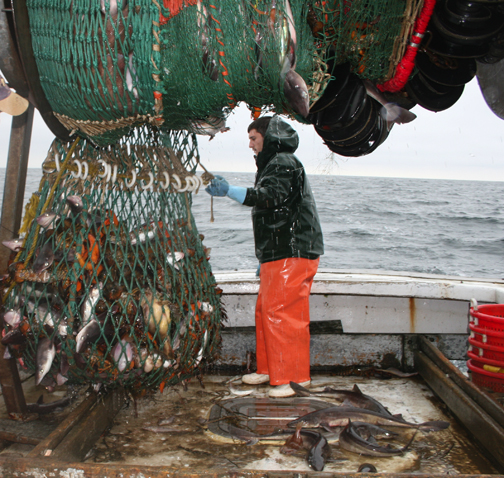Once again, a bill at the federal level attempts to cover all the bases and winds up quite possibly doing more harm than good.
The New England Fishery Management Council's Habitat Omnibus Amendment threatens to shut down even more fishing areas to the Northeast groundfish fleets — the commercial fleets, that is. Some of the same areas that reportedly will be closed to commercial vessels in an effort to protect spawning stocks (which have been shown to have migrated from many of these protected areas as a result of the same climatic shifts that sent the stocks north and east to the Canadian Maritimes and Scandinavia) will remain open to recreational boats, which hold nearly 40 percent of the haddock and cod quotas.
The Northeast Seafood Coalition's Jackie Odell says the Closed Area Technical Team showed up very late in the process of this amendment (which has been in the works for more than five years).
Time and time again, it takes years to develop an amendment, and then at the last minute, it's rammed through the process because time is running short. The quickened pace sends us blazing past red flags and critical questions because we just don't have time for nuance (or sometimes even for common sense).
This is no slight on our fishery management council members across the country. They have their hands full. It is no easy task to manage wild and farmed fisheries in any region of the country.
Nevertheless, we have to stop managing our fisheries in panic mode. Yes we have made tremendous progress in the revitalization of fish stocks, but it has largely been at the expense of fishing communities. There is a balance to strike, but we will only find it if we can take a step back and revise.
The science has shown that no matter how little we fish cod, the climate is not friendly to its "full" revitalization right now (however that may be defined). Not to mention the exploded population of dogfish (which is outcompeting cod), which we protected in a knee-jerk response to marginal science. We have since learned that we had it all wrong about dogfish. And if we had taken more moderate steps to protect the dogged dogfish, perhaps we could have caught that mistake before it was too late.
Let's not do that with fishing grounds. Enough already with dealing death knells to the Northeast groundfish fleet. What can we do to protect the community, the small-boat fishermen who are striving for a sustainable living?







